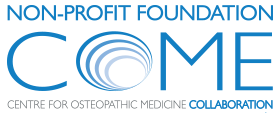Osteopathic manipulative treatment and the Spanish flu: a historical literature review
Abstract
Objective
To analyze the osteopathic manipulative treatment (OMT) techniques used for the management of patients affected by the Spanish flu according to four themes: the principles and procedures used, frequency and length of OMT, reported side effects, and advice for patients.
Methods
A structured review of the literature was performed by hand-searching texts at the Museum of Osteopathic Medicine International Center for Osteopathic History in Kirksville, Missouri, and online via PubMed (National Library of Medicine), ScienceDirect (Elsevier), and Google Scholar (Google, Inc). The literature search was carried out between February and March 2020. Three keywords were selected from the medical subject headings database of the National Library of Medicine: manipulation, osteopathic; influenza pandemic, 1918–1919; epidemics. Articles were then reviewed for relevance by screening for articles published between 1900 and 1940 that contained at least 1 of the following keywords in their title: Spanish influenza, flu, epidemic, grippe, pneumonia, or osteopathic management/treatment. All articles that provided information about OMT and advice met the inclusion criteria. Articles that did not report descriptions of manipulative intervention were excluded.
Results
Our search yielded 63 articles: 23 from the hand-search and 40 from the electronic search. No electronic source was selected for the review because none met inclusion criteria. A total of 16 articles from the hand-searched set met inclusion criteria and were analyzed according to the four main themes stated in the objective. The range of OMT approaches reported to be administered to patients with Spanish flu suggests that early osteopathic physicians treated patients with this disease using OMT in addition to offering advice on healthy lifestyle behaviors.
Conclusion
Conclusions from this study are limited by the historical and descriptive nature of the data gathered, which lacked the rigor of modern-day scientific studies. However, this review could lead to future research inquiries on the effectiveness of these approaches. Osteopathic physicians and osteopaths should embrace their historical osteopathic heritage by continuing the work of our predecessors and combining their hands-on experience and osteopathic principles with modern medical treatment and rigorous scientific standards.







